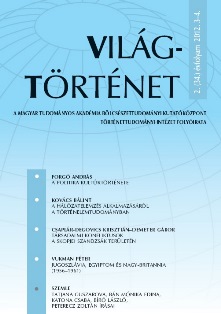Utazás a bácskai németekhez 1936 nyarán. Rudolf Schaal németországi fõiskolai tanár élménybeszámolója
Travel to Ethnic Germans of the Baoka in the Summer of 1936. An Account of the German College Professor Rudolf Schaal’s Experienc
Author(s): Alpár BezzeghSubject(s): History
Published by: Magyar Tudományos Akadémia Bölcsészettudományi Kutatóközpont Történettudományi Intézet
Summary/Abstract: After World War I the ethnic Germans became the most numerous national minority groups of East-Central and South-Eastern Europe. Not only the German foreign policy but also the public and the scientific life showed more and more interest in the life of these Germans after 1918. In the case of Yugoslavia the ethnic Germans with half a million people gave the biggest minority of the country. 70% of these were inhabitants of the Vojvodina region. In one of its parts, in the Baøka (Bácska/Batschka) some 175 000 so called Donauschwaben (Danube Swabians) were living at that time. The study is based on the record of a college professor from Germany who visited some of these villages with his students during the summer holiday of 1936 and put together a note based on his geographical, historical, ethnographical, economic and political observations. We get a very detailed picture about life in the village Filipowa (Szentfülöp/Baøki Graøac) situated in the western Baøka, where he was accommodated during this time. We also learn about the relationship (which dates from 1908 i.e. from the pre-war period) between the population of Filipowa and the “mother-country”. The text written by Schaal is being published at full length in Hungarian after the introductory paper.
Journal: Világtörténet
- Issue Year: 2012
- Issue No: 3-4
- Page Range: 257-287
- Page Count: 31
- Language: Hungarian

